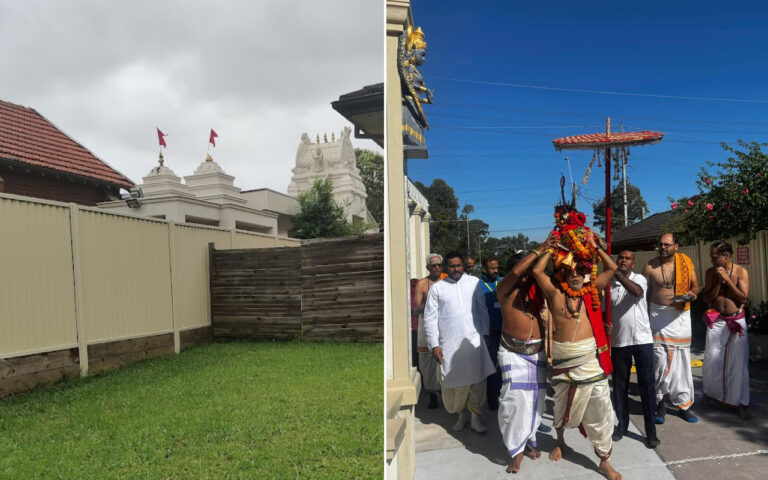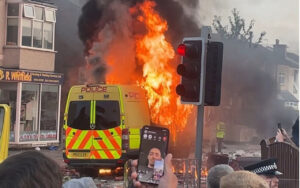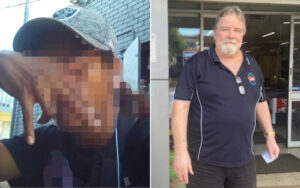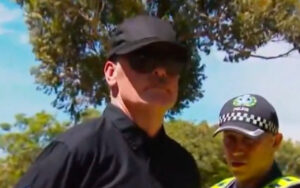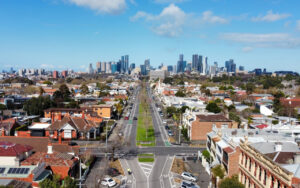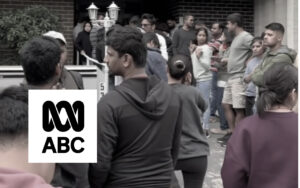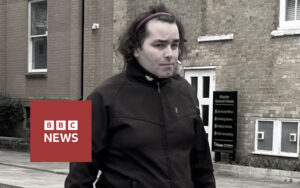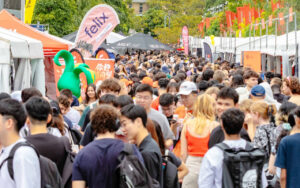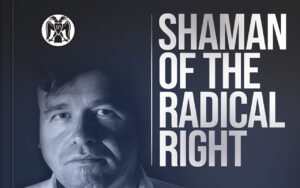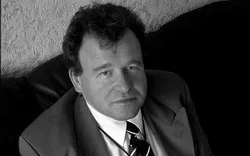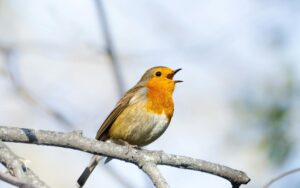Residents of a quiet Sydney suburb are anger that nothing is being done about problems caused by disrespectful worshippers at a Hindu temple, and some so fed-up they are moving out of the area.
The Sydney Shakti Temple, Cultural & Education Centre in Old Toongabbie in the city’s west was opened on the site of a Uniting Church by Fijian Indians in 2010 but expanded in 2021, and while it now has a capacity of 150 there are only four car spaces.
Locals say the expansion has resulted in excess noise, cars blocking driveways and foul smelling smoke pollution from ceremonial rituals, and even some connected to the temple admit the problems have become “difficult to live through”.
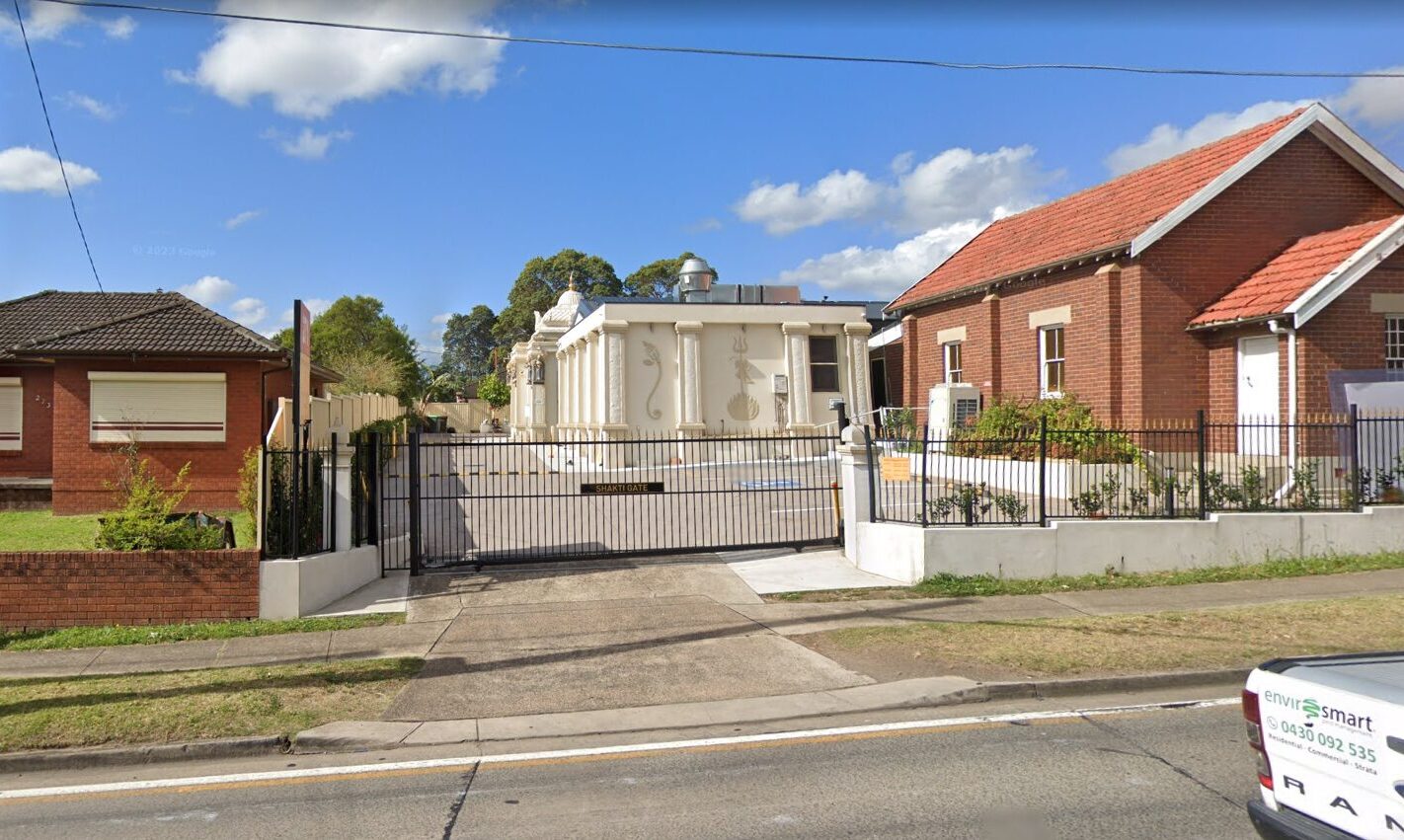
Bianca Anderson, who has lived on Chircan Road for 50 years, told the Daily Telegraph she was selling her home backing onto the temple because of the behaviour of the Hindu worshippers.
“Their treatment of our street and these neighbours, who have all been here a long time, is disgusting,’” she said.
“There’s no common sense and there’s no regard for our neighbourhood. They argue with us about whether they can park over our driveways. People have little picnics on our nature strips.”
She said she has been forced to call the fire brigade when ceremonial smoke set off her alarms, and knows of three traffic accidents that have taken place outside the temple’s main entrance.
Ms Anderson’s neighbour Amy Strandquist said she had similar issues, with traffic being the worst problem.
“They park on driveways, they park on corners. There’s a lot of burns and they do ceremonial burnings. It’s not incense – which smells lovely – it smells like charcoal,” she said.
On a post about an accident caused by a car leaving the temple from earlier this year one local wrote: “I’m 60 years old, grew up my whole life in Old Toongabbie. And that’s why I left. I’m not racist but it’s certainly not what is used to be. It’s like living in another country.”
Another said: “The members of this temple are intrinsically lazy, rude and ignorant. They drive and park like Chircan street is main road Bangalore!
“Only when there is a fatality will council be forced into action. These people are a blight on our neighbourhood.”
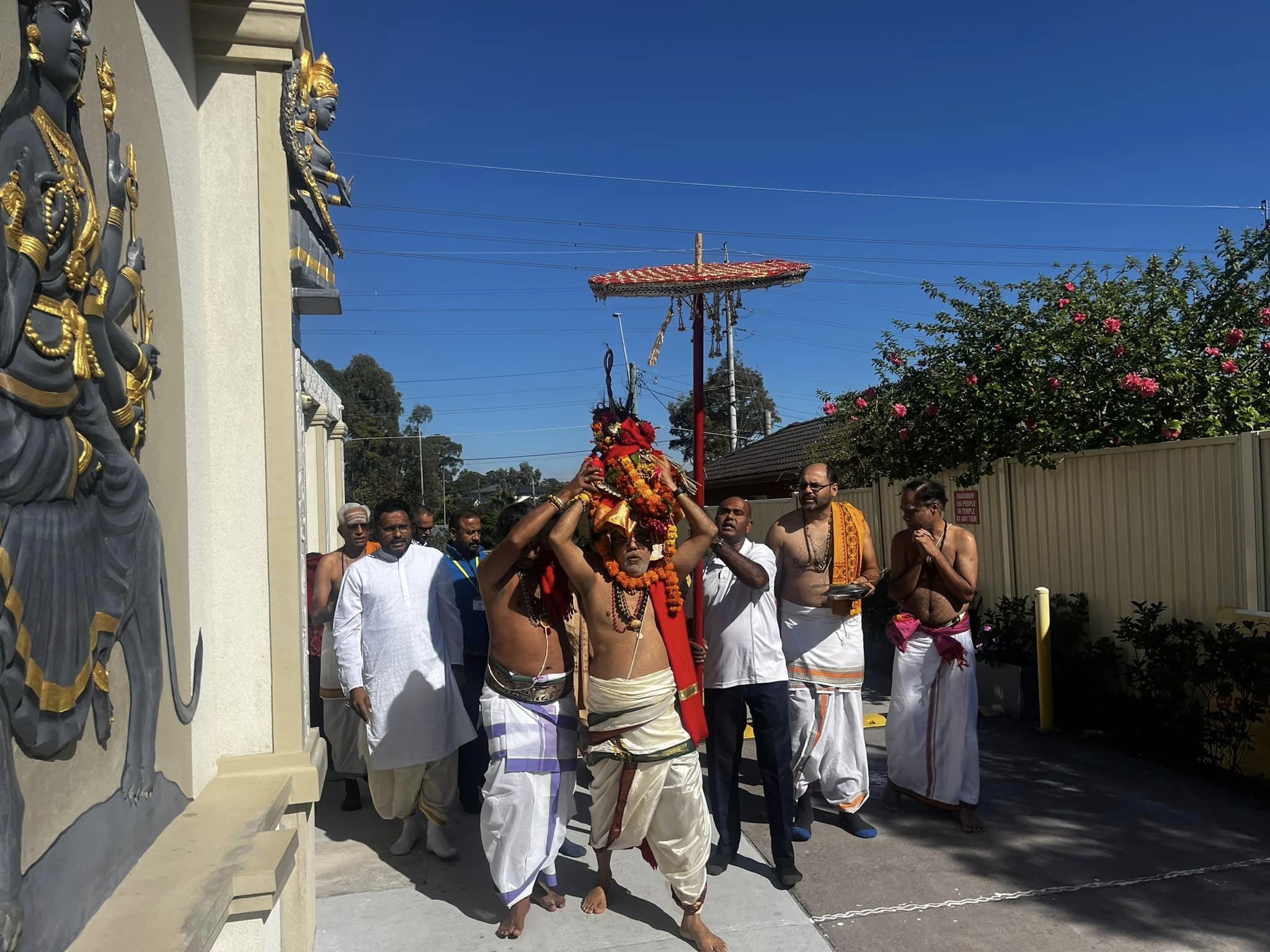
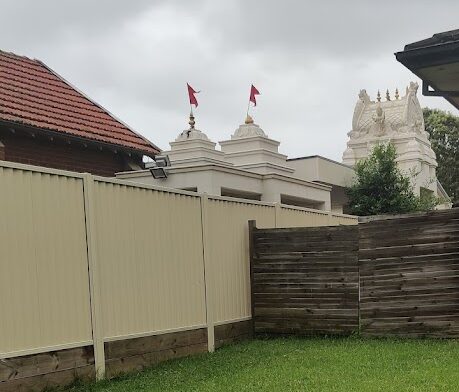
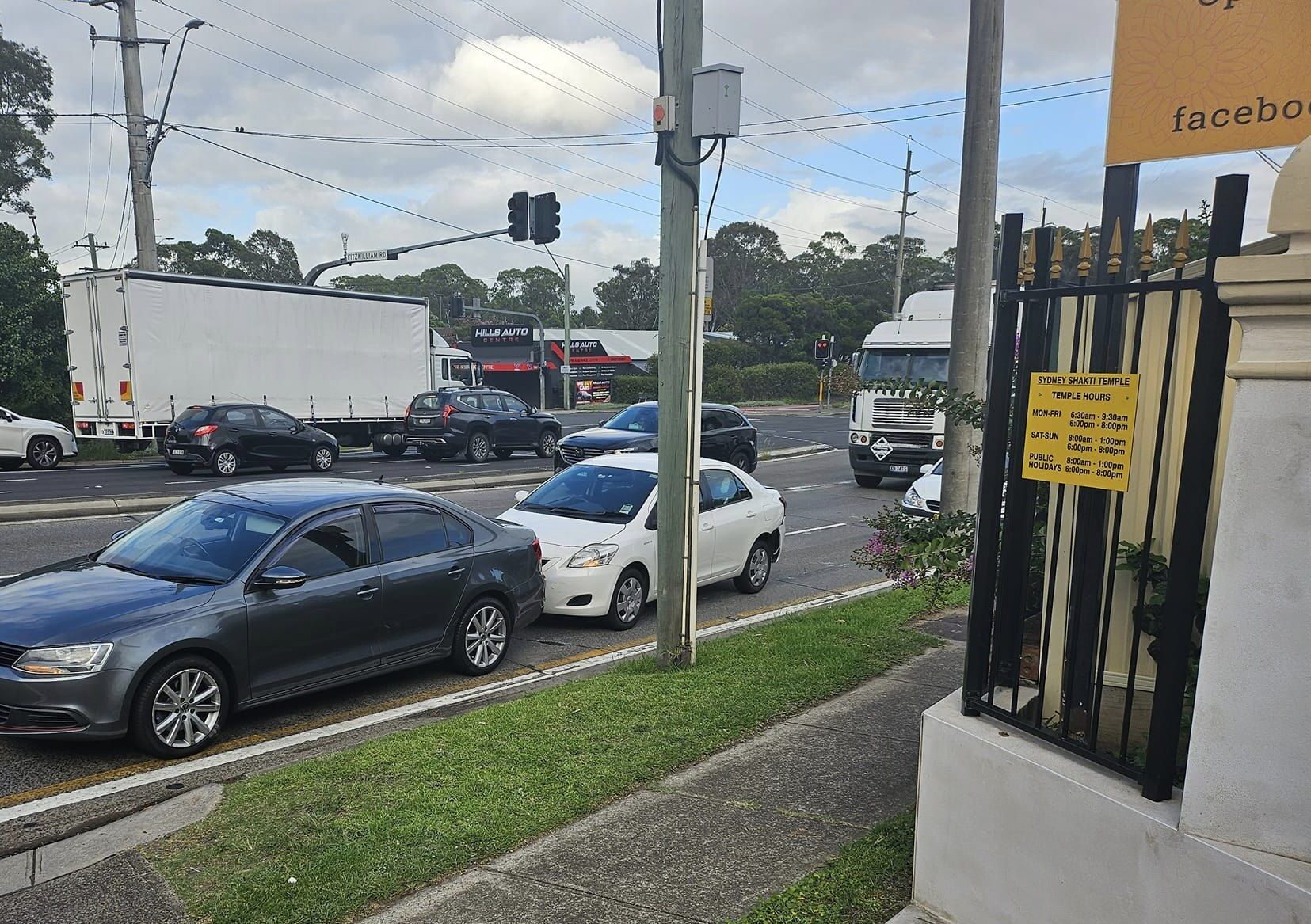
The temple has posted several messages to followers on its Facebook page begging their followers to respect neighbours, and not to block driveways or park illegally, but one recent comment reads: “Why don’t you all catch the bus to prevent the chaos to our community streets… it’s utterly ridiculous.”
The temple secretary Mathu Menon and his daughter Aneeta, who is the communications director and married to the priest, both admitted the temple was causing friction.
Mr Menon said they had “tried everything” to make worshippers follow the road rules, while Ms Menon said the number of attendees had skyrocketed and “tensions are high” as a result of their behaviour.
“I appreciate the community is getting frustrated … it is a nightmare. I imagine it is difficult to live through and am committed to how we’re going to turn the corner,” she said, adding that complaints were fielded “every single time”.
Ms Menon also said they were trying to get police and rangers to help, and suggested setting up a community forum held twice a year where concerns could be raised with council.
Parramatta Council said it had received just four complaints a year since 2021 about the temple, and all had been investigated.
According to the 2021 Census, 7.9% of the population of Old Toongabbie are Hindus.
Concerned residents in Pearcedale, Victoria, fear similar problems if a planned Hindu temple in their town on the outskirts of Melbourne goes ahead, and next month will get a decision from the Victorian Civil and Administrative Tribunal (VCAT).
Locals have spent the past two years fighting the development plans, which include multiple structures including an extensive podium with temple and prayer rooms, a double story food hall, bathing pool, 22 toilets, light and bell towers and parking for 60 cars.
Meanwhile, Hindus in Melton, in Melbourne’s west, are demanding a new cemetery allow open-air funeral pyres so the growing number of Indian immigrants in the area can cremate their dead like they do in their home country.
A traditional Hindu funeral pyre uses up to 600kg of timber and burns for six hours. The custom is responsible for the consumption of 50 to 60 million trees a year in India while sending 8 million tonnes of carbon emissions into the atmosphere.
Indians are the fastest-growing immigrant group in Australia, and according to the 2021 Census there are now more than 784,000 people with Indian ancestry in the country – 3.1% of the population – a 400% increase over the past 20 years.
